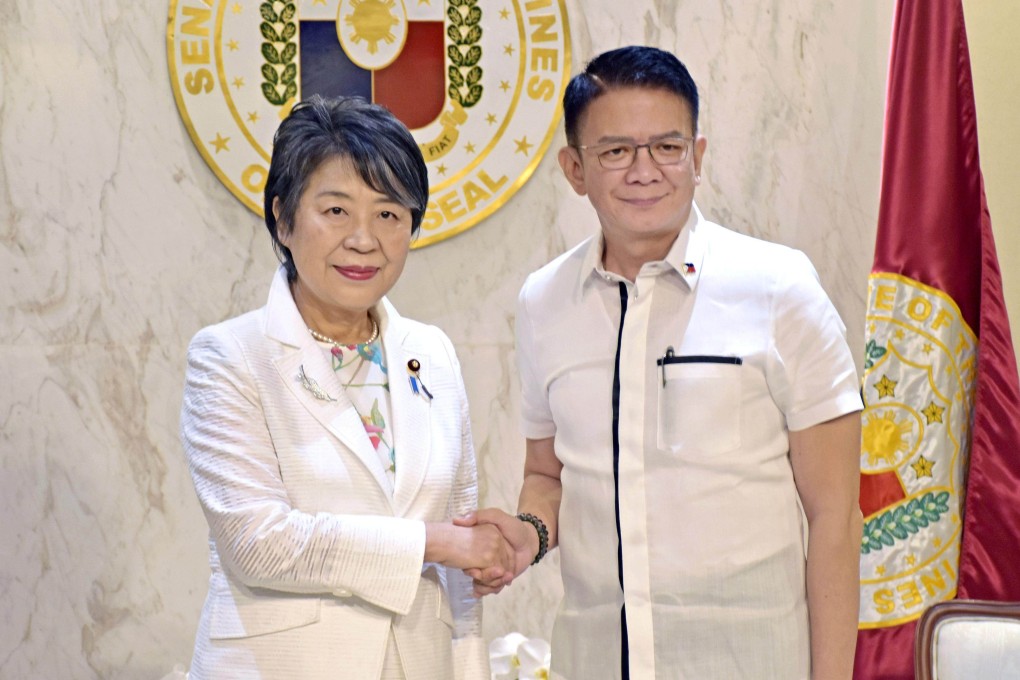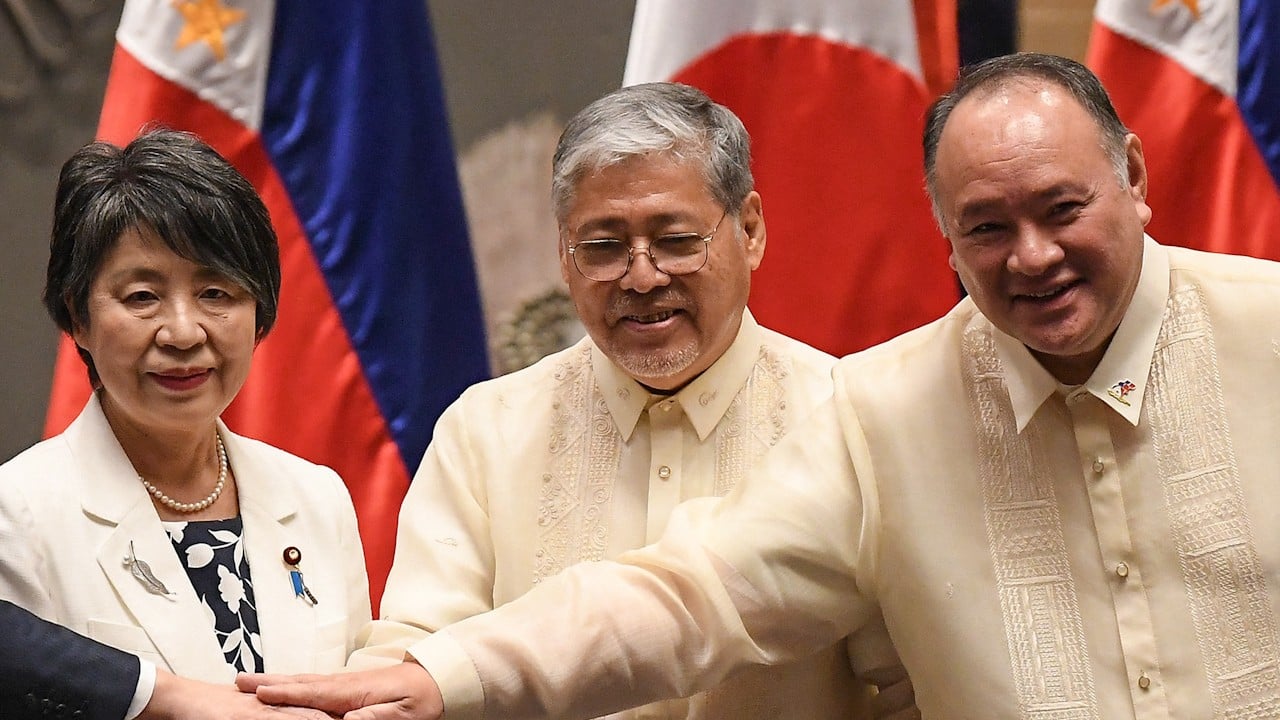Will delay in Philippine ratification of Japan defence pact affect deterrence plans?
Senate has not received signed copy of pact for approval, its president says, as he urges government to move quickly

The ratification of a historic agreement to allow Japanese troops on Philippine soil for the first time since World War II could be delayed due to bureaucratic hurdles, according to the Senate’s president, potentially complicating Manila’s efforts to strengthen bilateral defence ties and its own deterrence capabilities.
Senate President Francis “Chiz” Escudero said the relevant government agencies had not sent a signed copy of the agreement to the Senate for its approval, adding that he could not give a timeline as to when the chamber would ratify the pact, which both countries signed in July.
In a statement released on Tuesday, Escudero urged the government to move quickly, explaining his belief that the Reciprocal Access Agreement (RAA) with Japan, as well as similar defence pacts made between the Philippines and other countries, were needed to ward off potential threats that Manila could not handle on its own.
“I believe this agreement – the RAA and similar agreements with our allies – will enable us to provide an effective deterrence while our military is not strong enough to provide that kind of deterrence,” Escudero said.
Explaining that the RAA was still being reviewed by the relevant agencies, Escudero expressed concern that the Senate would lose time to deliberate the agreement as the upper chamber would be bogged down by plenary debates on next year’s national government budget after October.

